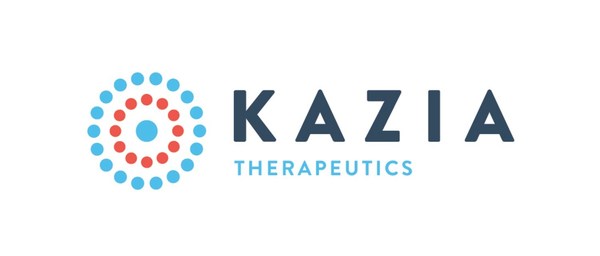POSITIVE DATA FOR PAXALISIB IN TWO CHILDHOOD BRAIN CANCERS PRESENTED AT 20TH ISPNO ANNUAL MEETING
- Written by PR Newswire

|
SYDNEY, June 13, 2022 /PRNewswire/ -- Kazia Therapeutics Limited (NASDAQ: KZIA; ASX: KZA), an oncology-focused drug development company, is pleased to announce the presentation of new data regarding the activity of paxalisib in two forms of childhood brain cancer with poor prognosis and limited treatment options.
The data is the subject of two poster presentations at the 20th International Symposium on Pediatric Neuro-Oncology (ISPNO), held in Hamburg, Germany, from 12-15 June 2022.
The first poster is presented by Dr Jeffrey Rubens at Johns Hopkins University and describes the activity of paxalisib in combination with a second drug in animal models of atypical teratoid / rhabdoid tumors (AT/RT). This builds on work previously presented at the American Association of Cancer Research (AACR) Annual Meeting in April 2022.
The second poster presents work led by Associate Professor Matt Dun at the Hunter Medical Research Institute at the University of Newcastle, Australia, and involving collaboration by ten international laboratories and leading paediatric cancer centres. The research principally relates to the combination of paxalisib with ONC201, an investigational therapy manufactured by Chimerix, Inc, in the treatment of diffuse intrinsic pontine glioma (DIPG). While the primary focus of the ISPNO presentation concerns animal models of the disease, two clinical case studies are also reported. Importantly, these data underpin the ongoing phase II clinical trial testing the safety and efficacy of paxalisib and ONC201 in DIPG.
Upcoming Webinar
Lead investigator on the DIPG research, Dr Matt Dun, will participate in an investor webinar alongside Kazia CEO, Dr James Garner, and Kazia Chief Medical Officer, Dr John Friend, to discuss the new ISPNO data and the broader context of Kazia's work in childhood brain cancer. The webinar is scheduled for 5pm, ET, on Wednesday, June 22nd (7am, Sydney time on Thursday, 23rd June), and interested parties may register via the following link:
Key Points
- Diffuse midline gliomas (DMGs) are a group of childhood brain cancers which include DIPG, and which represent approximately 15% of brain tumours in children. Life expectancy from diagnosis is estimated to be 9-11 months, and there are no FDA-approved drug treatments.
- ONC201, a dopamine receptor D2 (DRD2) antagonist, shows single-agent efficacy in DIPG, but patients invariably become resistant to therapy over time. A key resistance mechanism involves activation of the PI3K pathway, which is the target of paxalisib.
- Two patients who received the combination of ONC201 and paxalisib under compassionate access demonstrated "dramatic reductions in tumor volume and complete resolution of disease symptoms, extending overall survival".
- Using two aggressive autopsy animal models of DIPG the combination of paxalisib and ONC201 synergistically extended survival from 73 to 100 days (37%) and from 36 to 43 days (19%), respectively.
- On the basis of this research, a clinical trial (NCT05009992) of the combination commenced recruitment in November 2021 under the sponsorship of the Pacific Pediatric Neuro-Oncology Consortium (PNOC). The study is ongoing, with initial data anticipated in 1H CY2023.
"Brain tumours are the second most common cancer of children, but the leading cause of death, with the prognosis for aggressive forms of the disease such as DIPG remaining woeful," said Dr Matt Dun, lead investigator of the DIPG research. "It is vital that we find new treatments. This research collaboration has united many of the leading international centres in this field and has deployed cutting edge research tools to identify an extremely promising combination of therapies. My colleagues and I hope to see these laboratory findings validated in the ongoing PNOC clinical trial, which may establish ONC201 and paxalisib as the cornerstones of treatment for children and their families affected by this disease."
Kazia CEO, Dr James Garner, added, "Dr Dun's painstaking research over several years has yielded enormous insight into potential treatments for DIPG. We are excited to see such an emphatic demonstration of the potential for ONC201 and paxalisib to provide benefit in this disease. We are firmly committed to taking paxalisib forward in childhood brain cancer, and very much hope that the work of world-leading scientists such as Dr Dun will help to bring hope to all those touched by diseases such as DIPG."
Summary of Abstracts
Preclinical and case study results underpinning the phase II clinical trial testing the combination of ONC201 and paxalisib for the treatment of patients with diffuse midline glioma (NCT05009992)Lead Author: Matthew Dun, PhDInstitution: Hunter Medical Research Institute, University of Newcastle [Australia]
The PI3K inhibitor paxalisib, combined with the novel HDAC1/3 inhibitor RG2833, may improve survival in mice bearing orthotopic xenografts of atypical teratoid/rhabdoid tumorsLead Author: Jeffrey Rubens, MDInstitution: Johns Hopkins University, School of Medicine [Baltimore, MD]
About Kazia Therapeutics Limited
Kazia Therapeutics Limited (NASDAQ: KZIA; ASX: KZA) is an oncology-focused drug development company, based in Sydney, Australia.
Our lead program is paxalisib, a brain-penetrant inhibitor of the PI3K / Akt / mTOR pathway, which is being developed to treat glioblastoma, the most common and most aggressive form of primary brain cancer in adults. Licensed from Genentech in late 2016, paxalisib commenced recruitment to GBM AGILE, a pivotal study in glioblastoma, in January 2021. Seven additional studies are active in various forms of brain cancer. Paxalisib was granted Orphan Drug Designation for glioblastoma by the US FDA in February 2018, and Fast Track Designation for glioblastoma by the US FDA in August 2020. In addition, paxalisib was granted Rare Pediatric Disease Designation and Orphan Designation by the US FDA for DIPG in August 2020.
Kazia is also developing EVT801, a small-molecule inhibitor of VEGFR3, which was licensed from Evotec SE in April 2021. Preclinical data has shown EVT801 to be active against a broad range of tumour types and has provided compelling evidence of synergy with immuno-oncology agents. A phase I study commenced recruitment in November 2021.
For more information, please visit www.kaziatherapeutics.com[2] or follow us on Twitter @KaziaTx.
Forward-Looking Statements
This announcement may contain forward-looking statements, which can generally be identified as such by the use of words such as "may," "intend," "potential," "prospective," or other similar words. Any statement describing Kazia's future plans, strategies, intentions, expectations, objectives, goals or prospects, and other statements that are not historical facts, are also forward-looking statements. Such statements are based on Kazia's expectations and projections about future events and future trends affecting our business and are subject to certain risks and uncertainties that could cause actual results to differ materially from those anticipated in the forward-looking statements, including risks and uncertainties associated with clinical trials and product development and the impact of global economic conditions. These and other risks and uncertainties, are described more fully in Kazia's Annual Report, filed on form 20-F with the SEC, and in subsequent filings to SEC. Kazia undertakes no obligation to publicly update any forward-looking statement, whether as a result of new information, future events, or otherwise, except as required under applicable law. You should not place undue reliance on these forward-looking statements, which apply only as of the date of this announcement. Actual results could differ materially from those discussed in this announcement.
This document was authorized for release to the ASX by James Garner, Chief Executive Officer, Managing Director.
View original content to download multimedia:https://www.prnewswire.com/news-releases/positive-data-for-paxalisib-in-two-childhood-brain-cancers-presented-at-20th-ispno-annual-meeting-301565498.html[3]
References
- ^ https://hubs.ly/Q01czJVs0 (hubs.ly)
- ^ www.kaziatherapeutics.com (www.kaziatherapeutics.com)
- ^ https://www.prnewswire.com/news-releases/positive-data-for-paxalisib-in-two-childhood-brain-cancers-presented-at-20th-ispno-annual-meeting-301565498.html (www.prnewswire.com)
Read more https://www.prnasia.com/story/archive/3785197_CN85197_0













